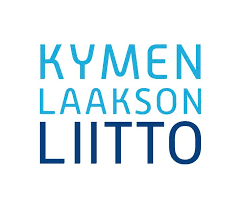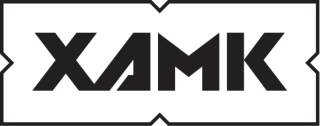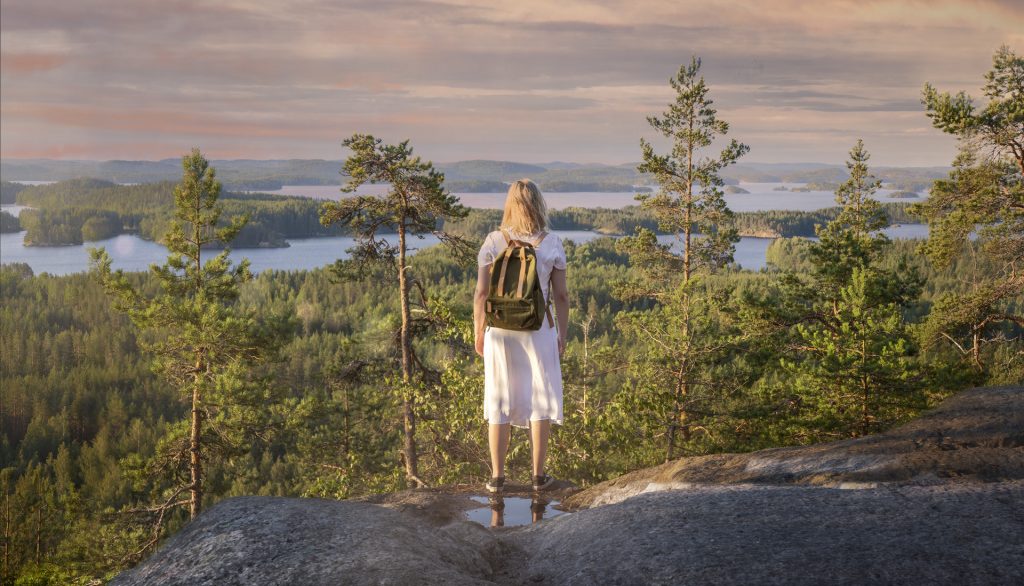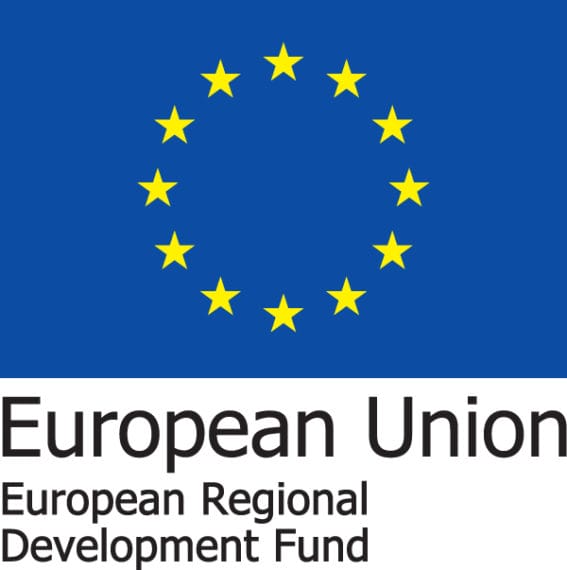
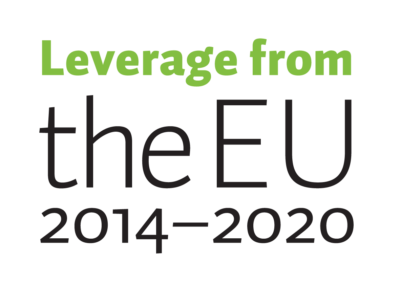
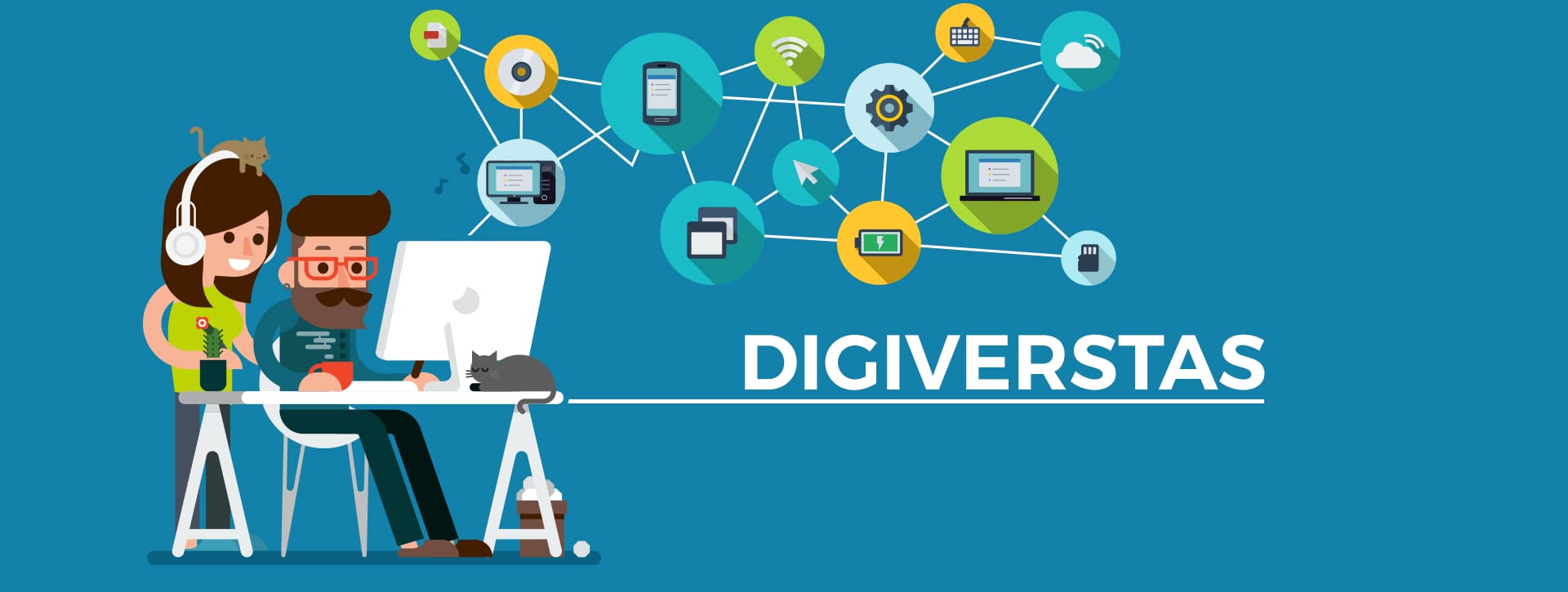
Digiverstas
Digital Innovation Ecosystem
The project project aimed to establish innovation ecosystem to Kymenlaakso that promotes the area of digitalisation and start-ups.
The project is finished.
South-East Finland University of Applied Sciences is a strong higher educator of game programming and cyber security. The project will combine this expertise with student projects and the needs of local business. New type of innovation ecosystem is generated during the project to take advantage of, game programming, cyber security, virtual reality, 3D-modelling and game design.
Digital Innovation Ecosystem project corresponds to growth companies in the challenge to find the right skilled labor. The project will bring together young professionals and companies in co-working projects. The idea is that the young professionals get to know potential employers and companies to promote their future career.
The project established an innovation ecosystem as part of Datariina-center in Kotka, which provides project work spaces and events. South-East Finland University of Applied Sciences is responsible for the entity for the development and implementation of learning environments and company orientated projects.
In co-operation projects students and companies confirm the development, where there will be new services, products, pilot projects and experiments in education. Action to ensure that the Kymenlaakso remains on the crest of digitalisation of development.
Results
- Digital innovation ecosystem, that offers services to companies.
- New learning environments through experimentations and pilots.
- For students Digiverstas offers experience from team working, project working, working in multidisciplinary teams, networking as well as credits for studies.
Current
Digiverstas interns from Malta – Matthew, Shaun, Karel & Isaac – took part in Open DaaS VR Hackathon. In 48 hours, the teams had to come up with an idea for a Virtual Reality (VR) game. Here is what they did.
There is so much out there, so many innovative ideas that inspire us and propel us to create something even better. Collaboration in virtual reality fosters a new social integration of learners and sets one out to explore just that.
A week ago, Open DaaS hosted another successful hackathon in partnership with XAMK Kotka Campus. The theme was based on Virtual Reality. A total of 5 teams submitted their VR project ideas to compete in the hackathon and had 48 hours to create a game idea and present it in front of an audience.
As part of XAMK Digiverstas, we took part in this hackathon as the Atlantic team, in collaboration with the natural resources institute of Finland (Luonnonvarakeskus). We spearheaded a project that aims to increase awareness of underwater pollution from increasing ferries, vessels and private boats in the Baltic Sea and how it affects marine life through time. Shaun met with Luonnonvarakeskus’ representative where they gave detailed insights regarding the underwater marine life in the Baltic Sea using VELMU. VELMU mapping aims to find the most valuable areas of species and habitats and the locations of species with special protection. Protecting the most valuable areas and controlling the operating pressures can safeguard the preservation of underwater biodiversity. We tend to use the elements from VELMU and add them to the VR game so that the individual who is playing, feels like he is diving in virtual reality and realize the damage that comes from boating pollution.
Shaun being an experienced diver, he knew how to add the feeling of being underwater while boats are passing directly above the divers and marine life. Moreover, the individual could select different features and understand the damage being done over time in front of him.
On the 3rd and final day, organizers began a short presentation around 12 PM, in which they introduced the goals of the event and how it would all go down. The teams started presenting their game ideas shortly afterwards and we were the final presenters. As soon as all the presentation were ready, the audience voted and chose the best game idea. It came out that our Atlantic team won the hackathon event!
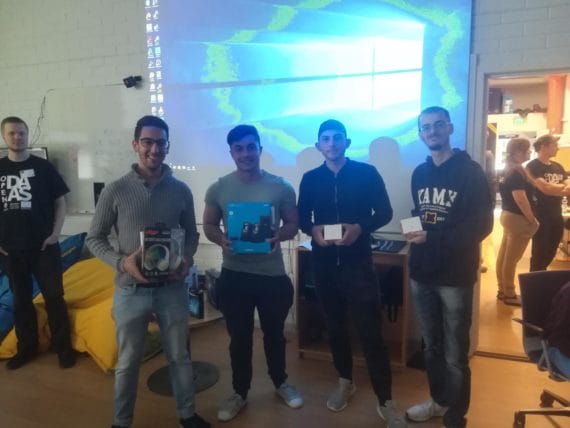
By
Shaun Saliba
Matthew Farrugia
Karel Tanti
Isaac Grech
Erasmus+ Interns at Digiverstas
Digiverstas received four Erasmus+ interns from Malta, Matthew, Shaun, Karel and Isaac. Matthew studies game programming and Shaun, Karel and Isaac are business and marketing students. They will be working in various projects and activities during their two months internship. The guys visited a local International Game Development Associations (IGDA) events earlier this year and wrote about their experience and how they felt about the Finnish sauna experience.
On the 31st of July, we were at Datariina where we met Vesa Raudasoja who happens to be the Vice Chairman of the International Game Development Association (IGDA). After a nice chat with him we were invited to the IGDA barbeque, which was being held later that day in Karhula. This was our first event with IGDA and it was an amazing experience. We got to meet a lot of new faces who are involved in the gaming industry of Kotka and Finland. As for the area that the barbeque was being organized, we were surrounded by beautiful scenery with multiple areas of relaxation. One could go swim in the nearby river, play some football at the sports ground or chill out by the BBQ area.
During our first IGDA gathering, we discussed different topics that relate to the gaming industry with numerous individuals such as students and members of the IGDA group. It was an important topic to debate, as the gaming industry in Malta is all about betting and online casinos whereas here in Finland it’s mostly about mobile applications. Even though the Finnish government heavily regulates gambling, several firms have found loopholes to get around their own way. In addition to all of this, gaming companies are using loot boxes that mimic lotteries.
We also had the chance to taste different Finnish food, such as Finnish strong mustard, sausages, local beer and Finnish long drink. The long drink reminded us of home and our local Cisk Chill ginger & lemon beer.
After some time, we were invited to another IGDA gathering in Karhula, which was held in Sam’s pub where we had a couple of cold ones. The barwoman was very patient as she explained most of the drinks since we were foreigners.
When chatting with some members of the IGDA, we told them that we have never been in a sauna and they told us that we had to visit Kuura. At Kuura, there was an indoor pool with a sauna right next to it. Not only that they had an inside sauna, they have ‘Lola’ which is a bus that has a wood burning sauna inside of it.
On our first sauna experience, we underestimated the heat that was coming at us. The heat made us feel a bit nauseated after a few minutes inside the sauna. We had to take a short cooling break in the cold pool as we couldn’t take the heat. When going for the 2nd round, this felt a lot better as our bodies got used to the heat and we finally had the whole sauna experience.
Attending these IGDA gatherings got us to meet various new faces and experiencing new cultures while having fun along the way.
By
Shaun Saliba
Matthew Farrugia
Karel Tanti
Isaac Grech
Erasmus+ Interns at Digiverstas
Two weeks ago we at Digiverstas received four Erasmus+ interns from Malta. Matthew is studying game programming and Shaun, Karel & Isaac are students of business and marketing. Our interns will be working in various projects and activities during their two months internship. In the beginning of their internship they were invited by our partner organisation Cursor to experience Assembly. Read more:
Assembly Summer 2018
What is ‘Assembly’? Assembly reflects 25 years of computer festival history. It first started out as a small LAN party amongst a few friends in 1992 which turned into one of the largest computer festivals in Europe.
The first party was held in a school in Kauniainen where it came out to be a great event as over 700 visitors attended. The first main organizer (Meegosh) pulled this off together with demo groups like Rebels, Complex, and Future Crew.
After 3 years of constant success and an ongoing community, the 1995 party organizing team decided to incorporate as a non-profit Finnish company and it became known as ‘Assembly Organizing’ which consisted of 60-80 people. They specialized in creating their own actual demos to present to their audience.
Nowadays, the Assembly organization consist of over 200 volunteers with different backgrounds that made all of this possible.
Our experience at Assembly Summer 2018 was astonishing. We got invited to take part in the VR section by FIVR, to test out their games and we volunteered to work at their VR section. When we got used to all of their VR stations, they left us in charge with all of their VR equipment like HTC Vive and the Oculus Rift. People kept on coming continuously and every player had 10 minutes to try out the VR
game. Even by giving us a short introduction on how things operate, we tackled all problems like champions.
After a few hours taking care of the VR station, they took over and we went out to explore and participate in other activities. There were products that we’ve tried out which are not commercially available as they are yet to be introduced.
We later met our friend from the IGDA Vesa Raudasoja, where he got us front row seats to see the old school demos. These would be short videos, where the participants would create short animated videos without any 3D software that is used today. These demos were something new for us as we’ve never seen anything like it before.
Once the demos finished, all of us were exhausted and we needed to find a place to rest. We found out that there were sleeping areas, since a lot of attendees brought their own mattresses. It came to a conclusion that in order to sleep there, you need to get your own mattress, which neither of us had. So we went back and continued to look around for a place to sleep. Karel spotted a charging post in the middle of the arena, where it turned out to be a chill out area with bean bags and sofas. After a quick chat and us being exhausted, we all fell to our knees and took a bean bag for our own.
The following day, a security employee woke us up at around 6:00 A.M. due to the fact that we were resting in the chill out area. The scheduled activities were going to take off and the employees were coming to start their preparations and make sure that everything is in place.
In the meantime, as it was so early, we took a tram and headed to the city centre in Helsinki. We strolled around the city centre and went sight-seeing as there are numerous places of interest that any individual needs to visit.
As time flew by, we headed back to Messukeskus were Assembly Summer 2018 was taking place. In the entrance of the large arena, preparations were under way for Robo-Wars. For the duration of the preparations we had a talk with the main organiser where he compared and contrasted with previous years, and stated that applicants and the cage itself are decreasing over the years. This is a shame for such an exciting hobby, which may die out in the years to come. When the fights took off, it was such an extraordinary thing to watch live as we only watched something similar online.
Afterwards, we headed out towards the VR station so that we could lead a hand and test out other new games that they developed.
When we were ready, we made our way towards the GameJam section where we met Vesa. He introduced us to his colleagues that were programming and developing new games. They showed us their projects and gave us demos to try out. After testing their work, we gave them our feedback which they found useful. We also took part in voice acting sessions and added sound effects to their games. Such an activity was very interesting and enjoyable.
We spotted some really classic arcade games from the 1970’s, where we spent quite some time playing as such arcade consoles aren’t that common nowadays. We couldn’t experience it anywhere else but at Assembly. Moreover, games from the 1990’s were also available for us to play again which made us relive our childhood memories.
In addition to all of the electronic entertainment, there were also a variety of board games to be played and for sale.
This brings us to the most mind blowing activity throughout the whole weekend which took place on the main stage where a large screen displayed a whole new level of graphic design competition. Such activity involved 4 categories which are the, 1k compo, 4k compo, 64k compo and demo compo (what the best computer can produce nowadays).
These would be animated videos that are under a strict storage limit. This puts more pressure on the graphic design team and even the programmers as they had to watch their storage limit.
After the competition ended, we headed to the chill out area to get some rest as we were exhausted. The following morning we went back to Kotka.
By
Shaun Saliba
Matthew Farrugia
Karel Tanti
Isaac Grech
Digiverstas – Digital Innovation Ecosystem
Info
Budget

